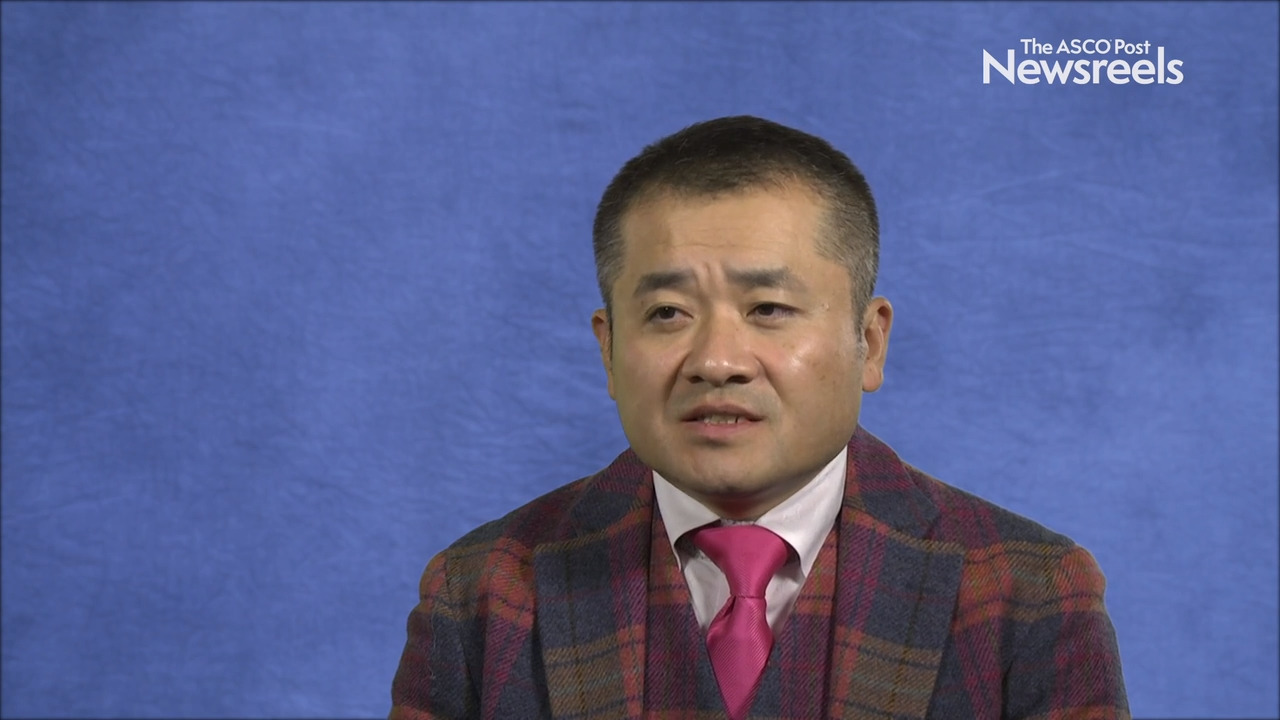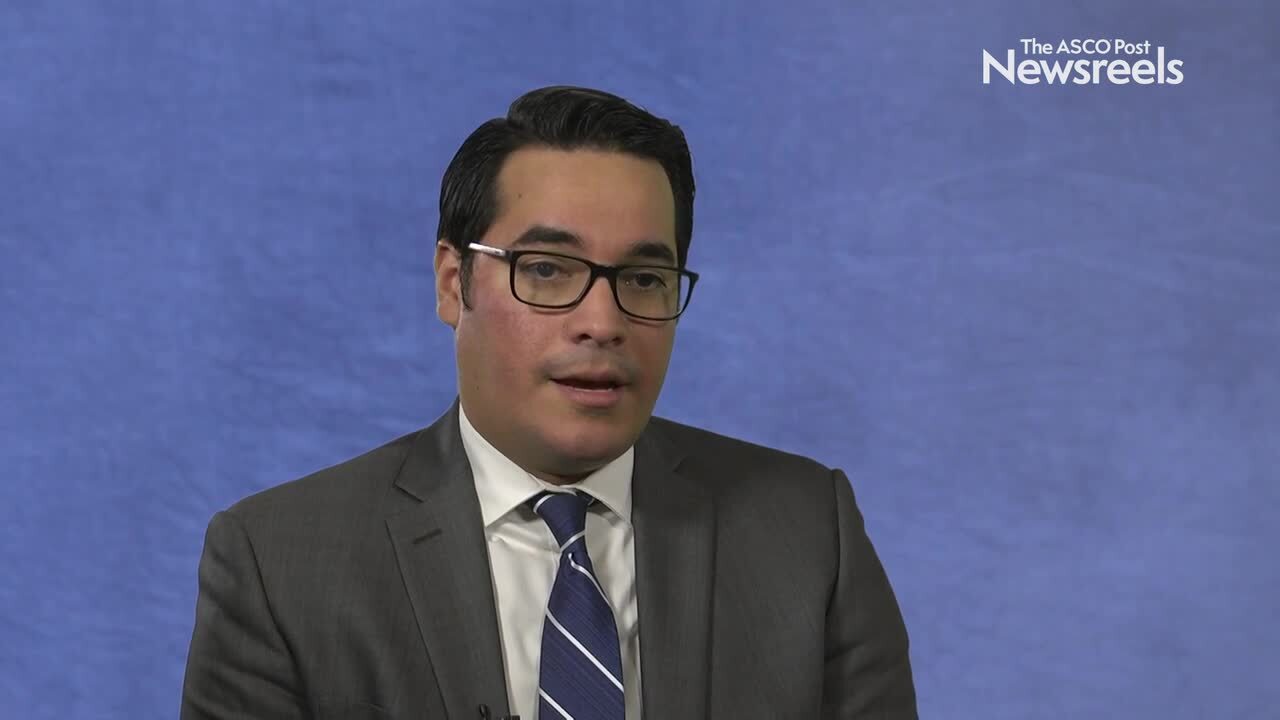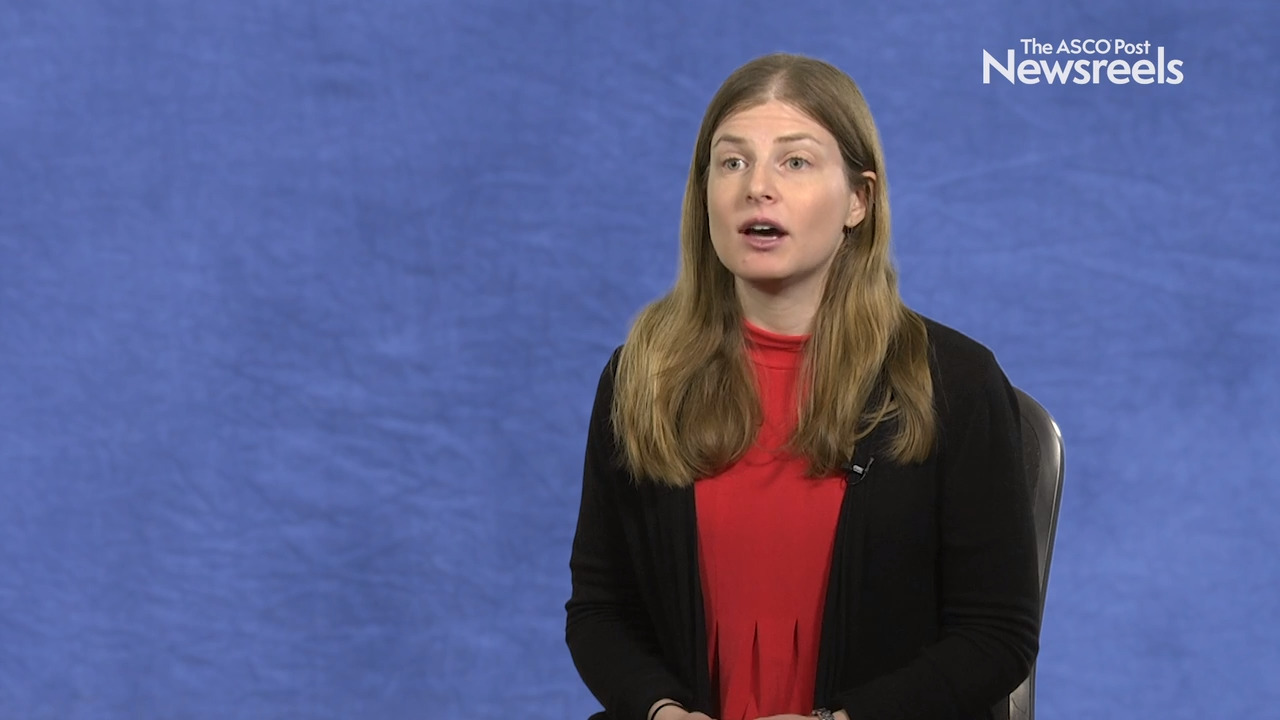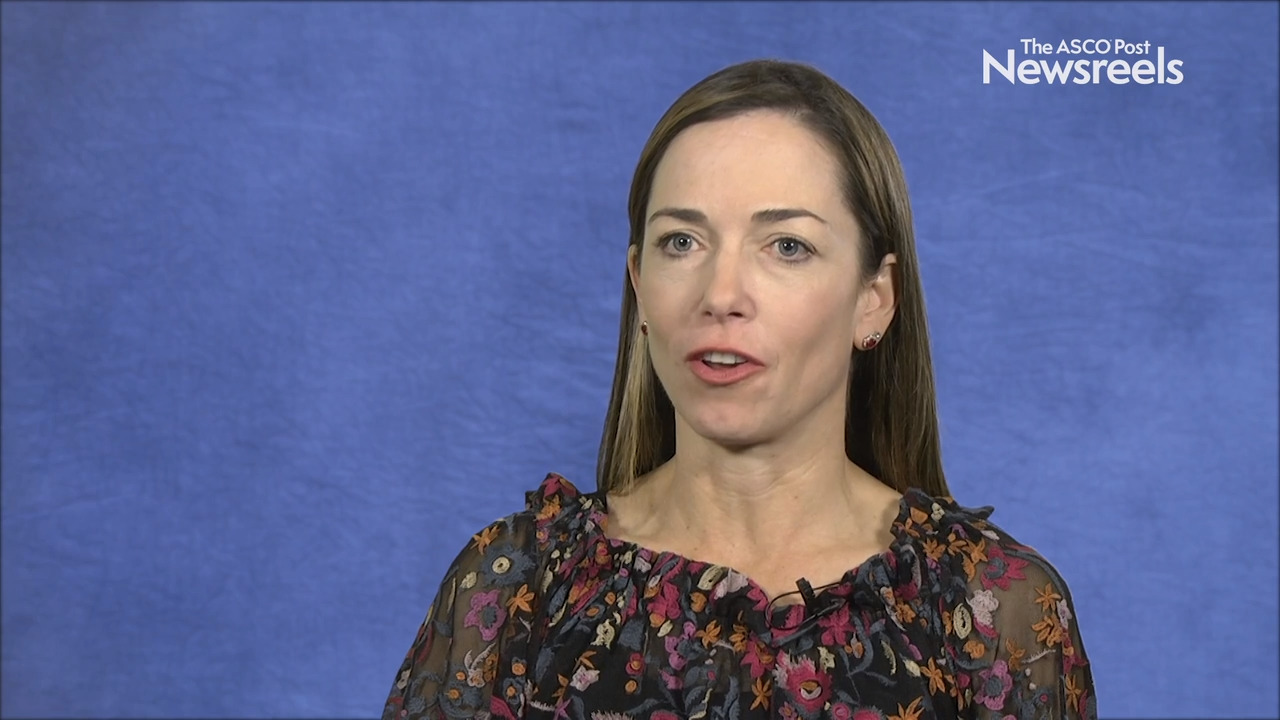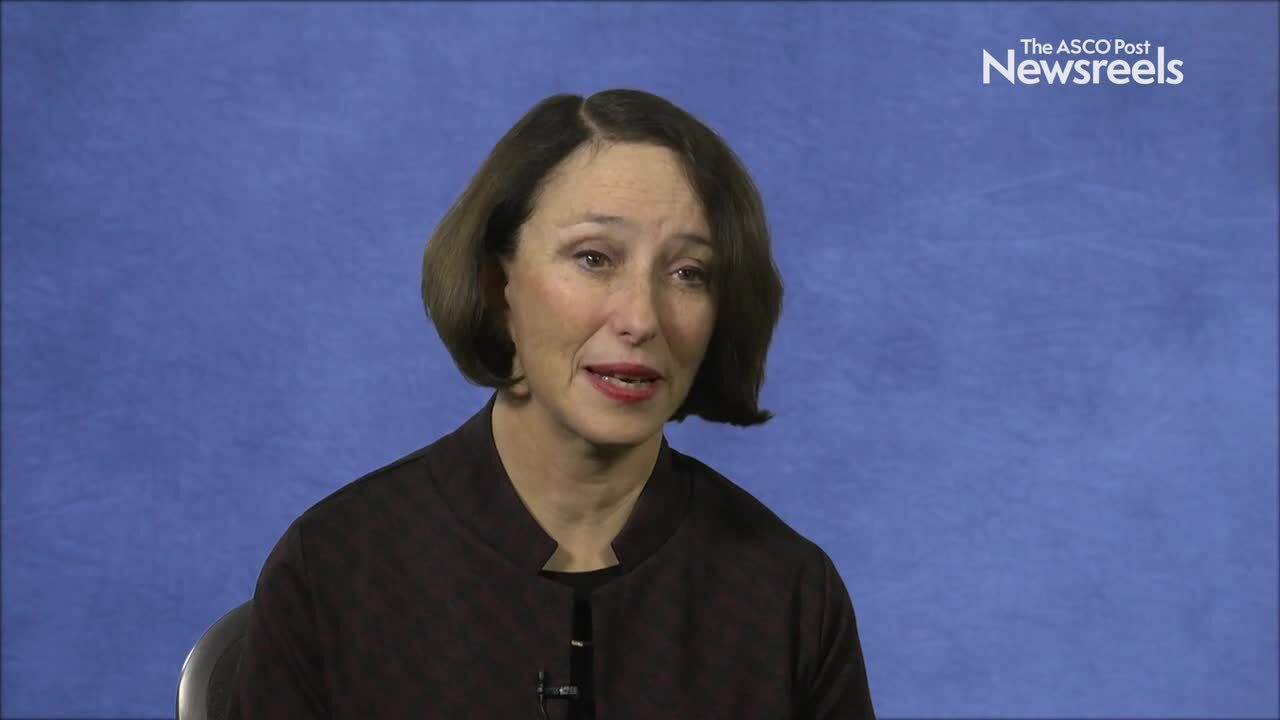Harold J. Burstein, MD, PhD, and Daniel F. Hayes, MD, on Breast Cancer With Positive Lymph Nodes: Treatment Controversy
2018 San Antonio Breast Cancer Symposium
Harold J. Burstein, MD, PhD, of the Dana-Farber Cancer Institute, and Daniel F. Hayes, MD, of the University of Michigan Rogel Cancer Center debate whether all women with breast cancer and positive lymph nodes should receive chemotherapy.
Shoichiro Ohtani, MD, PhD, of Hiroshima City Hiroshima Citizens Hospital, discusses study findings on extending anastrozole to 10 years, which led to higher rates of disease-free survival and distant disease–free survival (Abstract GS3-04).
Roberto A. Leon-Ferre, MD, of the Mayo Clinic, discusses study findings on the effectiveness of oxybutynin in decreasing the frequency and severity of hot flashes (Abstract GS6-01).
Shoshana M. Rosenberg, ScD, of Dana-Farber Cancer Institute, discusses her study findings on the lower quality of life associated with mastectomy, and the need for intervention and timely referrals to supportive resources, especially for underserved populations (Abstract GS6-04).
Sara A. Hurvitz, MD, of the University of California, Los Angeles, discusses the natural history and novel combinations for HER2-positive disease as well as predictive and prognostic markers for this type of breast cancer.
Judy E. Garber, MD, of the Dana-Farber Cancer Institute, summarizes a special session she moderated, which included discussion of polygenic risk scores, genetic testing in diverse populations, and what to do when presented with moderate-penetrance mutations.
